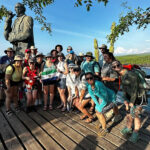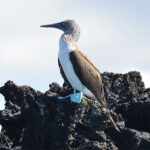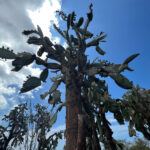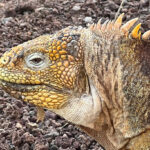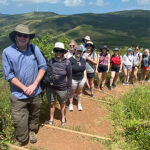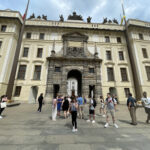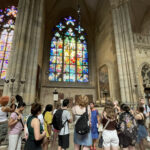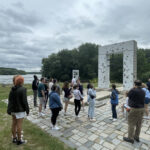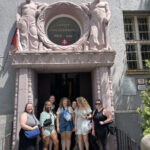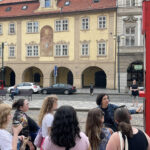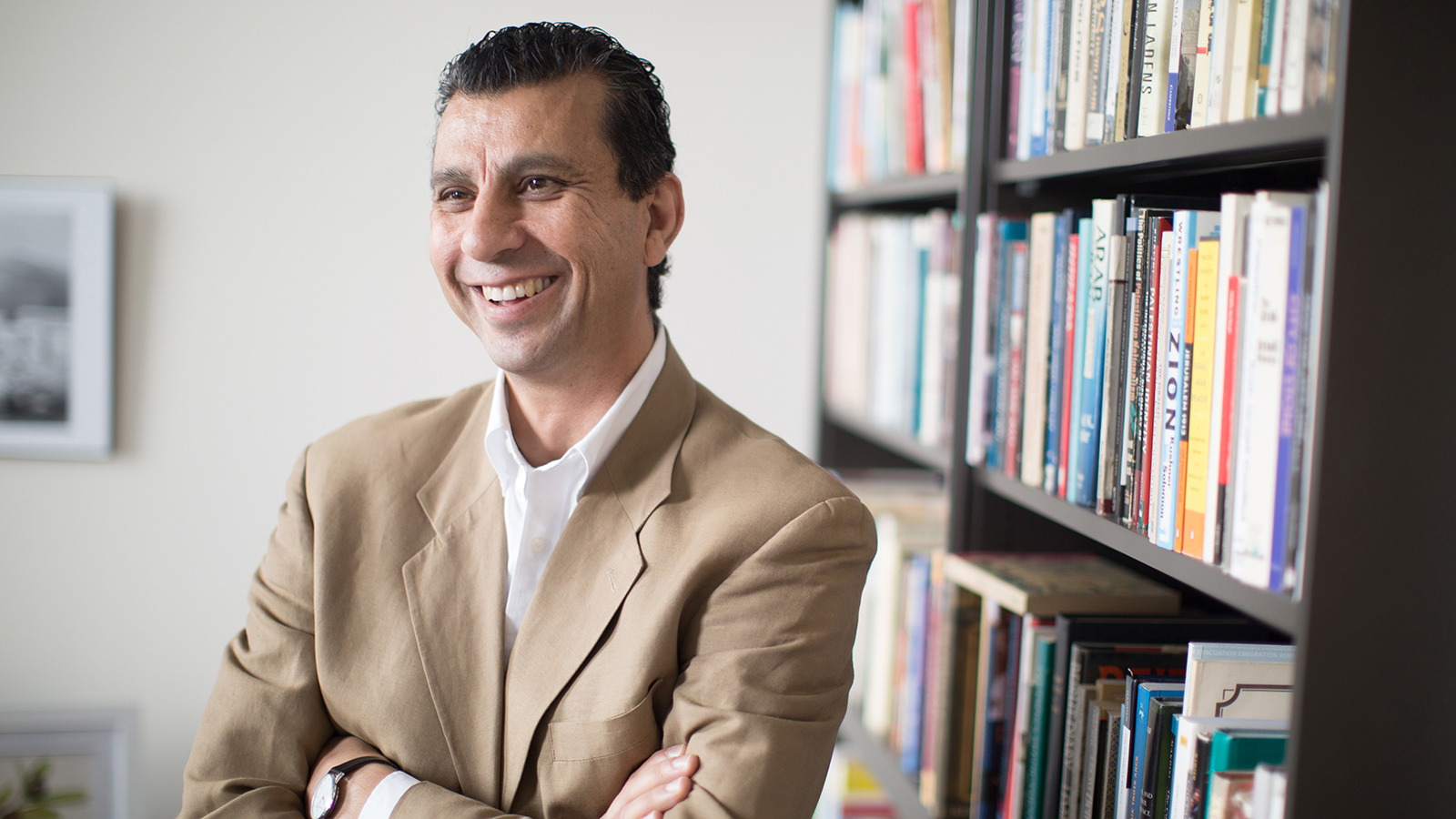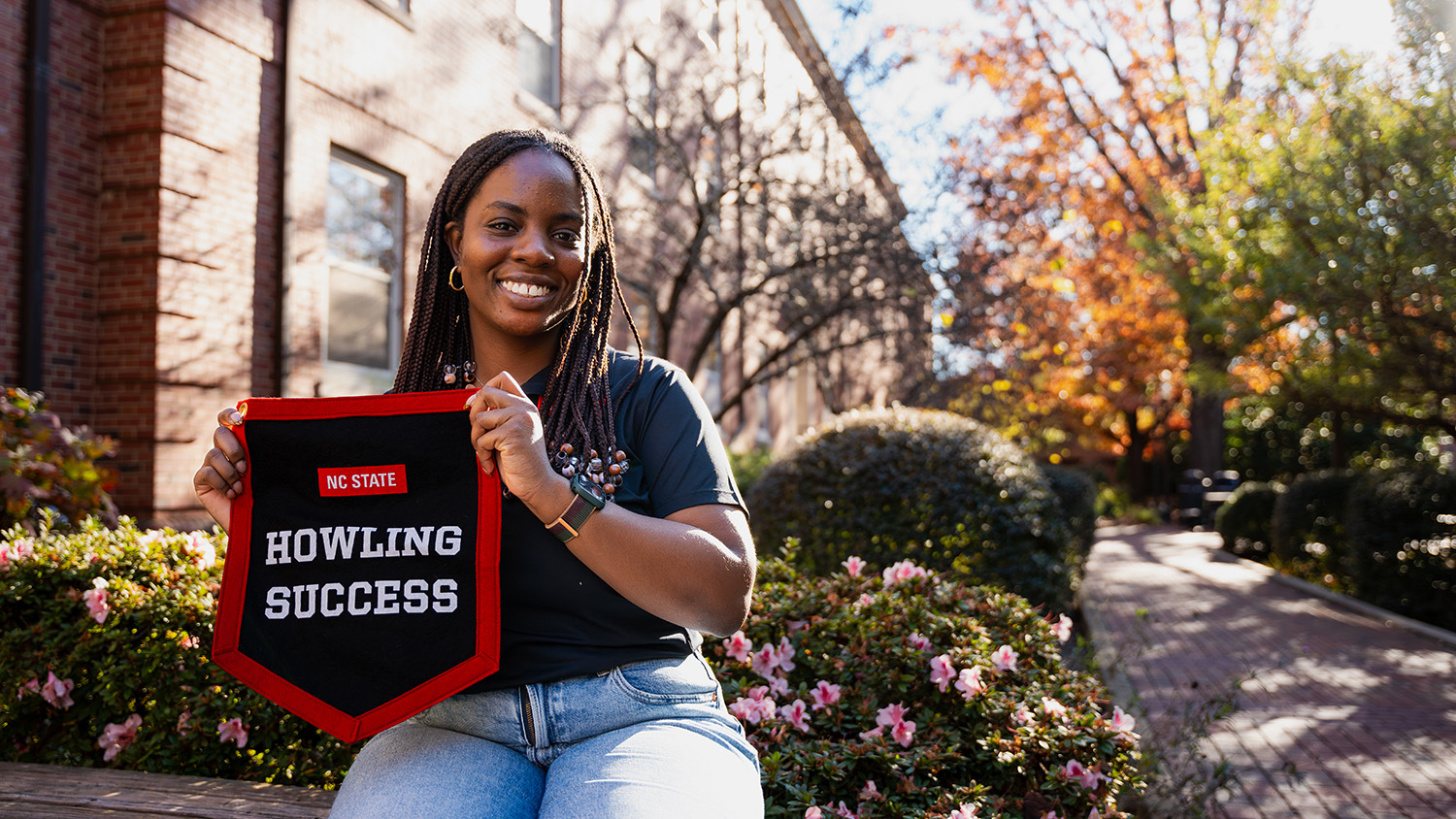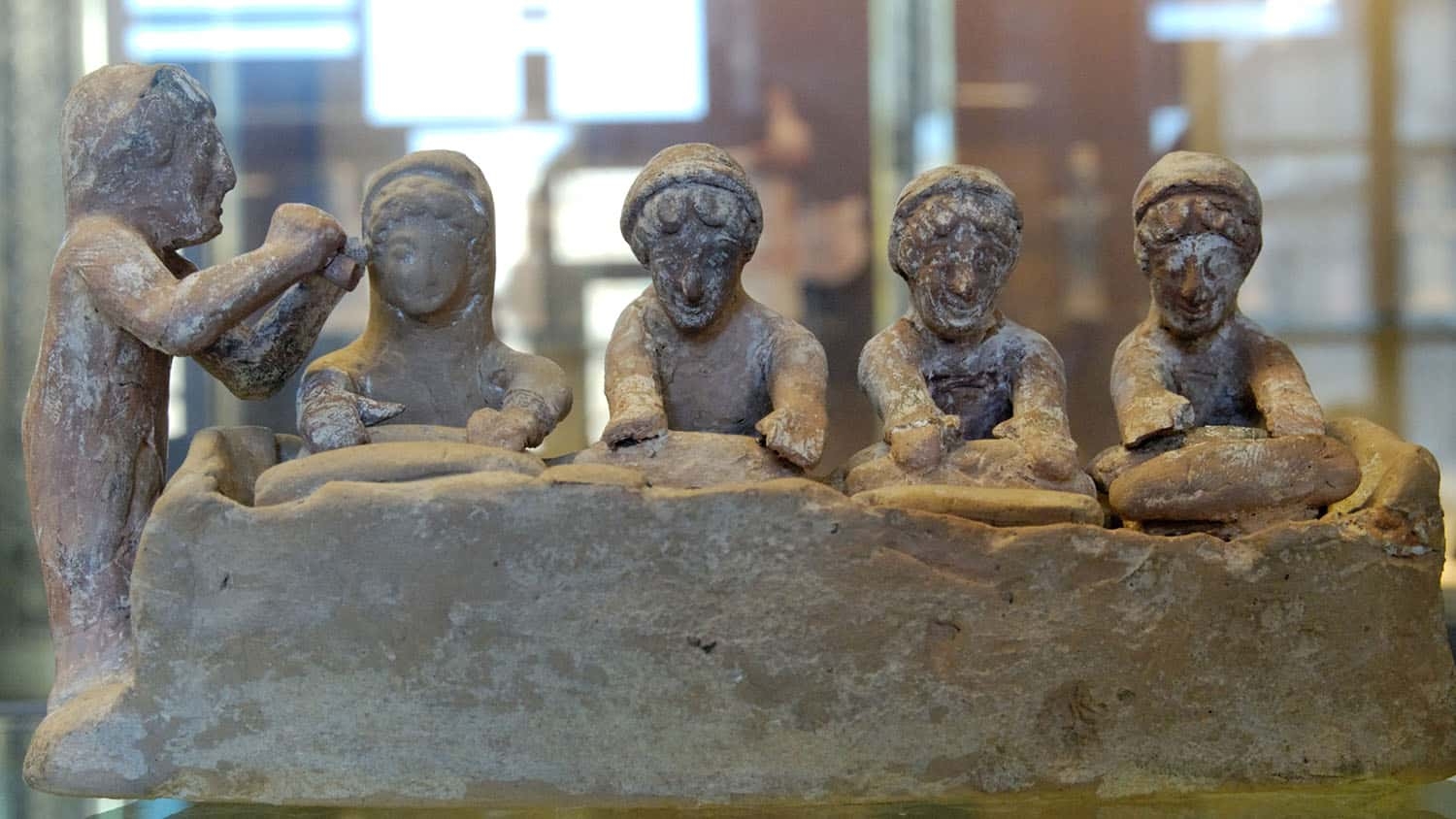The Importance of Place in History
NC State students gain an international, hands-on learning experience while studying abroad in Prague and the Galapagos Islands
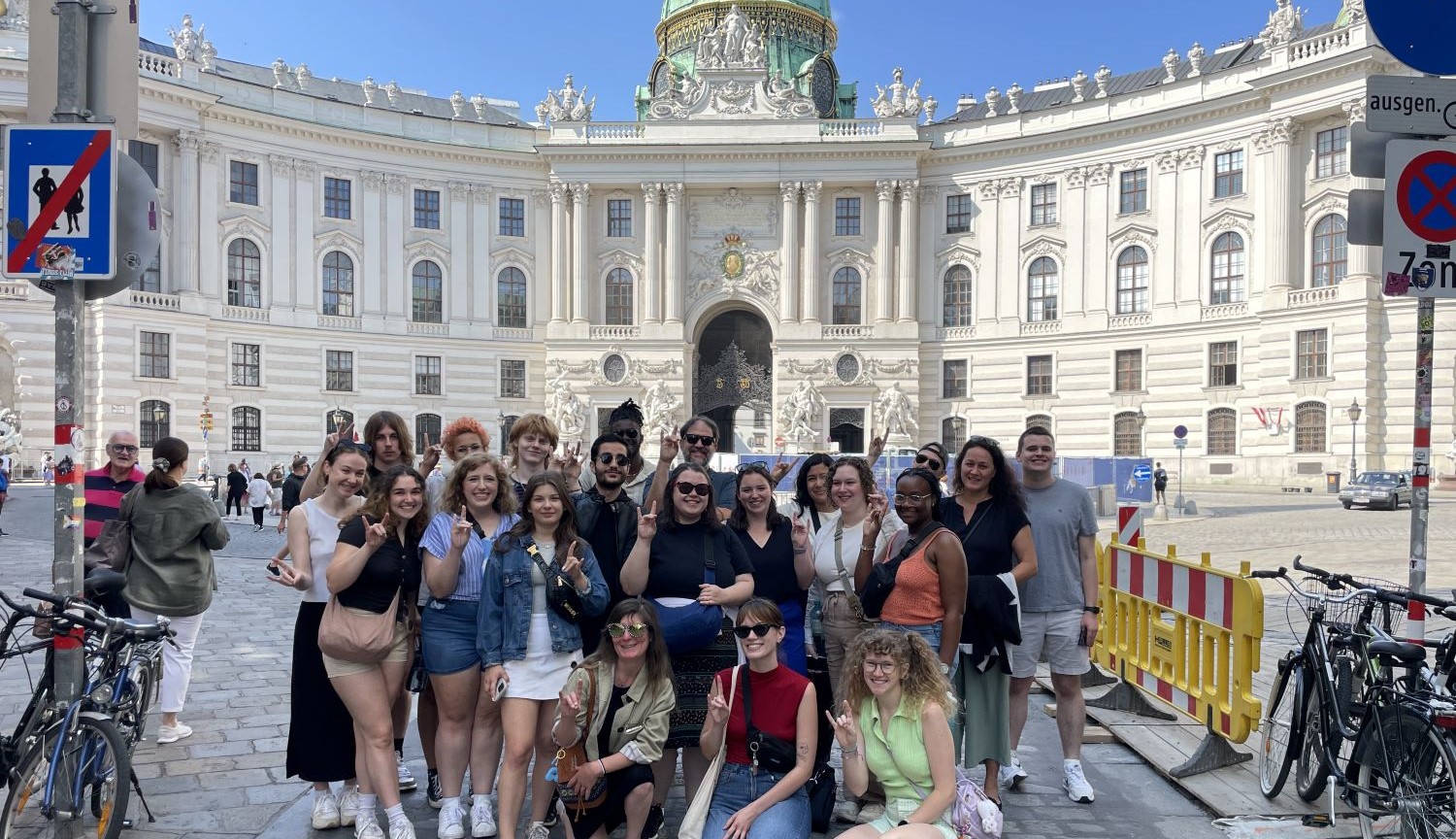
Using the city of Prague and the Galapagos Islands as their classrooms, two groups of NC State students experienced the importance of place in history during their history study abroad trips last semester.
One group spent two weeks this summer traveling through the Czech Republic with short visits to Bratislava, Slovakia, and Vienna, Austria, for a six-credit course, Public History in Prague. The 20 students visited more than 15 historic sites, museums and cultural centers during the trip, co-directed by history professors Alicia McGill and Verena Kasper-Marienberg.
The other group traveled to Quito and the Galapagos Islands in Ecuador. They spent 11 days during spring break for a three-credit course, History and Natural History of the Galapagos Islands.
The 17 students visited historic and natural sites, including those examined by Charles Darwin. They also participated in such field learning opportunities as climbing a volcano, snorkeling and bird watching, and teachable occasions like discussions about the sustainability of the famed archipelago.
Lewis Owen, professor and dean of the College of Sciences, co-directed the program with history professor Paul Brinkman, who also heads the Environmental Humanities Research Lab at the North Carolina Museum of Natural Sciences.
We caught up with four student travelers to learn about their study-abroad experiences, the skills they acquired, and more.
Visiting the Galapagos Islands
Senior Carrie Rawls is majoring in history with a minor in business.
What was your favorite part of the trip?
Making friends from all areas of the university. Although I was the only history major on the trip, experiencing the natural phenomenon through the eyes of peers with interests in meteorology, zoology, marine science and geology made the experience even more worthwhile.
What did you learn from the trip?
Had I not gone on the trip and gotten to know professor Brinkman, I would not be pursuing my interests in history in the same way. I am working on a project about European residents and visitors to the islands that was kick-started by information covered in our pre-trip classes. I have had the opportunity to do archival work at the Smithsonian, and practice areas of history I had not encountered in my time at NC State.
Senior Max Alsop is majoring in anthropology with a minor in paleontology.
What skills did you learn that will help you in the future?
I learned how to have conversations with the people into whose homes I entered. Despite some cultural and language differences, the people I talked with in Ecuador and the Galapagos were just like people I knew in North Carolina. Being able to talk and bond over very human experiences, (like catching lizards as a kid and asking your parents to keep the lizards as pets), put into perspective how similar we are in our humanity.
How would you describe the learning experience?
The learning experience was phenomenal. I cannot express how different it is to learn about plate tectonics in a classroom setting with a projector and an exam in a week, versus getting to walk across hardened lava flows to learn about volcanoes. There is not a single thing I learned on that trip that has not stuck with me because I was EXPERIENCING it all.
Visiting Prague
Graduate student Alana Gomez is pursuing a master’s degree in public history.
What did you learn from the trip? What did you learn about yourself?
I learned much about the history of the cities I visited, most importantly the broader historical events that informed their current memory and identity. I learned more about the work than about myself because I realized how much knowledge and scholarship was out there. It is often hard to make this connection in the U.S. when you are surrounded by the same environment.
How would you describe the learning experience?
It was amazing and like nothing else, I’ve had the pleasure of being a part of it. The value of an international education, even for two weeks, is unparalleled.
Senior Christopher Murphy is majoring in interdisciplinary studies with a minor in psychology.
What skills did you learn that will help you in the future?
The ability to actively solve problems without pre-planning is something I developed. While we had a plan for how the day would go, rarely did it go smoothly (trains missed, attractions closed, etc.). Being able to adapt and keep moving is something that will serve me well in my future.
What was your favorite part of the trip?
Honestly, it was just riding the tram everywhere. It took me some time to readjust to having to drive everywhere once I got back. My favorite place to visit was this cafe outside our hotel that served excellent breakfast croissants.
Based on a 2018 program, Public History in Prague was revived with modifications in 2023. It involved a partnership with NC State’s European Center in Prague.
The co-directors of the summer 2023 program said its goal is multifaceted. It aims to provide graduate and undergraduate students with a multicultural experience, enable them to network with international scholars, stir their curiosity about public history and help direct their futures.
Before the trip, students received instruction in European history, cultural heritage, memory and public history; while in Prague they gained first-hand experience by connecting with and attending lectures by practicing historians, and public history and cultural heritage professionals. Some students also attended an international heritage conference, HERITAGES Past and Present – Built and Social.
For graduate students, the experience “put public history into practice,” McGill said. For undergraduates, “it helped them understand the meaning of public history,” added Kasper-Marienberg.
The graduate student participation was possible thanks to James Sorrell, an alumnus and donor, whose generosity supports graduate education and programming in public history.
The next public history study abroad program will take place in Japan next summer, followed by Belize in 2025 and Central Europe in 2026.
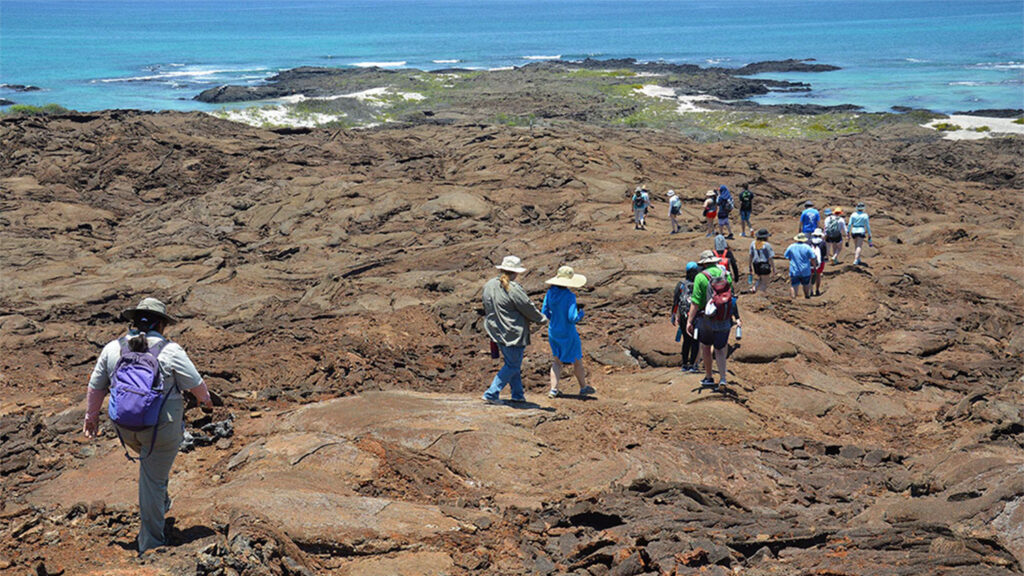
This is the first year NC State offered the study abroad trip to the Galapagos Islands. It involved a partnership with the Universidad San Francisco de Quito in Ecuador.
Before the trip, students learned about the history and natural history of the islands by attending weekly classes at the Museum of Natural Sciences. Additionally, museum curators served as guest speakers, covering such topics as the birds, reptiles, plants and fish endemic to the islands.
Brinkman describes the goal of the program as hands-on history. “It’s all about the experience, which can be transformative,” he said.
The History and Natural History of the Galapagos Islands program will be available again in 2025. However, the hope is to offer it to alumni next year, Brinkman said.
- Categories:
